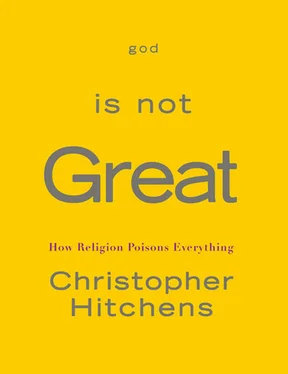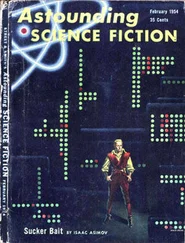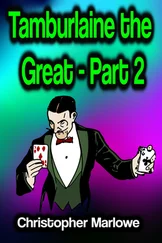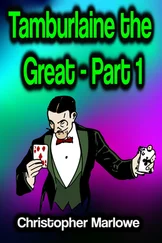So the Sabbatai Sevi religion came to an end, and survives only in the tiny syncretic sect known in Turkey as the Donme, which conceals a Jewish loyalty within an outward Islamic observance. But had its founder been put to death, we should be hearing of it still, and of the elaborate mutual excommunications, stonings, and schisms that its followers would subsequently have engaged in. The nearest approximation in our own day is the Hasidic sect known as Chabad, the Lubavitcher movement once led (and according to some, still led) by Menachem Schneerson. This man’s death in Brooklyn in 1994 was confidently expected to produce an age of redemption, which it so far has not. The United States Congress had already established an official “day” in Schneerson’s honor in 1983. Just as there are still Jewish sects who maintain that the Nazi “final solution” was a punishment for living in exile from Jerusalem, so there are those who preserve the ghetto policy which maintained a watcher at the gates, whose job it was to alert the others if the Messiah arrived unexpectedly. (“It’s steady work,” as one of these watchmen is supposed, rather defensively, to have said.) Surveying the not-quite and might-have-been religions, one could experience a slight feeling of pathos, were it not for the constant din of other sermonizers, all of them claiming that it is their Messiah, and not anybody else’s, who is to be awaited with servility and awe.
CHAPTER THIRTEEN
Does Religion Make People Behave Better?
A little more than a century after Joseph Smith fell victim to the violence and mania that he had helped to unleash, another prophetic voice was raised in the United States. A young black pastor named Dr. Martin Luther King began to preach that his people—the descendants of the very slavery that Joseph Smith and all other Christian churches had so warmly approved—should be free. It is quite impossible even for an atheist like myself to read his sermons or watch recordings of his speeches without profound emotion of the sort that can sometimes bring genuine tears. Dr. King’s “Letter from Birmingham Jail,” written in response to a group of white Christian clerics who had urged him to show restraint and “patience”—in other words, to know his place—is a model of polemic. Icily polite and generous-minded, it still breathes with an unquenchable conviction that the filthy injustice of racism must be borne no longer.
Taylor Branch’s magnificent three-volume biography of Dr. King is successively titled Parting the Waters , Pillar of Fire , and At Canaan’s Edge . And the rhetoric with which King addressed his followers was designed to evoke the very story that they all knew best—the one that begins when Moses first tells Pharoah to “Let my people go.” In speech after speech he inspired the oppressed, and exhorted and shamed their oppressors. Slowly, the embarrassed religious leadership of the country moved to his side. Rabbi Abraham Heschel asked, “Where in America today do we hear a voice like the voice of the prophets of Israel? Martin Luther King is a sign that God has not forsaken the United States of America.”
Most eerie of all, if we follow the Mosaic narrative, was the sermon that King gave on the last night of his life. His work of transforming public opinion and shifting the stubborn Kennedy and Johnson administrations was almost done, and he was in Memphis, Tennessee, to support a long and bitter strike by the city’s ground-down garbage collectors, on whose placards appeared the simple words “I Am a Man.” In the pulpit at Mason Temple, he reviewed the protracted struggle of the past years and then very suddenly said, “But it doesn’t matter with me now.” There was silence until he went on. “Because I’ve been to the mountaintop. And I don’t mind. Like anybody I would like to live a long life. Longevity has its place. But I’m not concerned about that now. I just want to do God’s will. And he’s allowed me to go up the mountain. And I’ve looked over. And I have seen the Promised Land. And I may not get there with you, but I want you to know , tonight , that we as a people will get to the Promised Land!” Nobody who was there that night has ever forgotten it, and I daresay the same can be said for anyone who views the film that was so fortunately taken of that transcendent moment. The next best way of experiencing this feeling at second hand is to listen to how Nina Simone sang, that same terrible week, “The King of Love Is Dead.” The entire drama has the capacity to unite elements of Moses on Mount Nebo with the agony in the Garden of Gethsemane. The effect is scarcely diminished even when we discover that this was one of his favorite sermons, and one that he had delivered several times before, and into which he could slip as occasion demanded.
But the examples King gave from the books of Moses were, fortunately for all of us, metaphors and allegories. His most imperative preaching was that of nonviolence. In his version of the story, there are no savage punishments and genocidal bloodlettings. Nor are there cruel commandments about the stoning of children and the burning of witches. His persecuted and despised people were not promised the territory of others, nor were they incited to carry out the pillage and murder of other tribes. In the face of endless provocation and brutality, King beseeched his followers to become what they for a while truly became; the moral tutors of America and of the world beyond its shores. He in effect forgave his murderer in advance: the one detail that would have made his last public words flawless and perfect would have been an actual declaration to that effect. But the difference between him and the “prophets of Israel” could not possibly have been more marked. If the population had been raised from its mother’s knee to hear the story of Xenophon’s Anabasis , and the long wearying dangerous journey of the Greeks to their triumphant view of the sea, that allegory might have done just as well. As it was, though, the “Good Book” was the only point of reference that everybody had in common.
Christian reformism arose originally from the ability of its advocates to contrast the Old Testament with the New. The cobbled-together ancient Jewish books had an ill-tempered and implacable and bloody and provincial god, who was probably more frightening when he was in a good mood (the classic attribute of the dictator). Whereas the cobbled-together books of the last two thousand years contained handholds for the hopeful, and references to meekness, forgiveness, lambs and sheep, and so forth. This distinction is more apparent than real, since it is only in the reported observations of Jesus that we find any mention of hell and eternal punishment. The god of Moses would brusquely call for other tribes, including his favorite one, to suffer massacre and plague and even extirpation, but when the grave closed over his victims he was essentially finished with them unless he remembered to curse their succeeding progeny. Not until the advent of the Prince of Peace do we hear of the ghastly idea of further punishing and torturing the dead. First presaged by the rantings of John the Baptist, the son of god is revealed as one who, if his milder words are not accepted straightaway, will condemn the inattentive to everlasting fire. This has provided texts for clerical sadists ever since, and features very lip-smackingly in the tirades of Islam. At no point did Dr. King—who was once photographed in a bookstore waiting calmly for a physician while the knife of a maniac was sticking straight out of his chest—even hint that those who injured and reviled him were to be threatened with any revenge or punishment, in this world or the next, save the consequences of their own brute selfishness and stupidity. And he even phrased that appeal more courteously than, in my humble opinion, its targets deserved. In no real as opposed to nominal sense, then, was he a Christian.
Читать дальше












